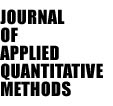 |
|
|||
JAQM Volume 17, Issue 1 - March 30, 2022
Contents
Managing “Generation Z” based on Differences in Employee Value Propositions - Romania versus the EU
Razvan BARBULESCU
Gen Z will soon be the predominant generation in the workplace. It is such a different generation versus the previous ones that new guidelines of managing young talent were written. All the advice in managing the new generation is based on several psiho–social characteristics that were the effect of the early years of living that have formed the values of this generation. Yet, despite many of the factors that have affected the early years of living are similar, there are differences between countries and even regions. Thus the question arises: should managers lead Gen Z representatives based on the global guidelines or should they rather adapt the management style to the country. In order to find an answer to this question, we’re comparing the results of a large cross country study on the value propositions that motivate the young generation, to understand how similar Romanian GenZ is to European GenZ.
Assessing the Correlation between Gender Inequality Index and Child Mortality Rates for 147 Countries in 2019
Ionela-Roxana PETCU, Andreea MIRICA, Liliana CATRINA
Gender equality is an important element in the overall wellbeing of the society, particularly for children. This paper aims to assess the correlation between gender inequality and several indicators related to child mortality rates, namely: (i) infant mortality rate (IMR), (ii) neonatal mortality rate (NMR), (iii) under-five mortality rate (U5MR), (iv) female U5MR and (v) male U5MR (all per 1000 live births). In this respect, an approach based on the Gender Inequality Index is chosen. Robust and exponential regression models, as well as the Spearman correlation coefficient are used. The results show positive relationships between the Gender Inequality Index and the child mortality rates.
Sustainability-driven Innovation, Knowledge Sharing and Knowledge Application Effects on Product Innovation in Industrial SMEs
Sebastian-Ion CEPTUREANU, Eduard-Gabriel CEPTUREANU
Design/methodology/approach – For data analysis PLS-SEM and SmartPLS 3 software were used because of the distributional assumptions and model complexity, model specification and interpretation. PLS-SEM is also known to simultaneously address multiple dependency associations with higher statistical efficiency. Purpose – This study examines the impact of sustainability-driven innovation on product innovation and the mediating effects of knowledge sharing and knowledge application on this relationship. Findings – The study provides empirical evidence indicating that industrial SMEs may improve their product innovation by implementing sustainability-driven innovation. These findings support previous studies emphasizing the role of sustainability in innovation or its role in providing mechanisms to enhance product innovation without affecting the environment. Moreover, the findings support the literature suggesting that SMEs engagement in environmental based innovation, in our study sustainability-driven innovation, may not contribute but rather drive innovation. Moreover, the results show that knowledge sharing and knowledge application partially mediates the impact of sustainability-driven innovation on product innovation in industrial SMEs, indicating the ability of knowledge to mediate sustainability-driven innovation impact on innovation. This finding is line with other studies proving that knowledge significantly enhances innovation capabilities of companies and that knowledge strengthens the organizational propensity to become environmental-friendly. Research limitations/implications –The findings have to be understood as context specific, since a sample of industrial SMEs was investigated. SMEs from other industries may act differently, both in terms of using sustainability-driven innovation or other forms of innovation, and in the mediating effects of knowledge sharing and knowledge application. Secondly, sustainability-driven innovation may have further implications for product innovation; in this study, the long term effects are not assessed. Third, only two knowledge processes are considered – knowledge sharing and knowledge application, the mediating effects may dilute or not if other knowledge processes, such as knowledge creation or knowledge acquisition, are considered. Practical implications – Industrial SMEs may improve product innovation in terms of sustainability-driven innovation operationalization by considering knowledge sharing and knowledge application. Sustainability-driven innovation contributes to the development of existing innovation capabilities of SMEs and it may increase firm-level sustainability. Its implementation may be facilitated through the adoption of new knowledge sources including, for instance, a specific focus on corporate social responsibility. SMEs have to pay attention to these signals by investing in absorptive capacity or by recognizing the importance of external knowledge - such as bringing customers’ input into the business. Knowledge sharing and knowledge application mediation effects should include those knowledge processes that SMEs’ sensitivity to changes in environmental related innovation opportunities. In order to develop these capabilities, SMEs are advised to implement processes that emphasize knowledge application regarding the latest product related developments. Developing these knowledge processes will enable the SMEs to identify new innovation opportunities. Originality/value – This study highlights the importance of sustainability-driven innovation in improving product innovation in industrial SMEs. Furthermore, we provide evidence of the relationship between knowledge processes and innovation by scrutinizing the mediating effects of both knowledge sharing and knowledge application. The study suggests that, in order to improve product innovation, SMEs should encourage knowledge sharing and knowledge application.

